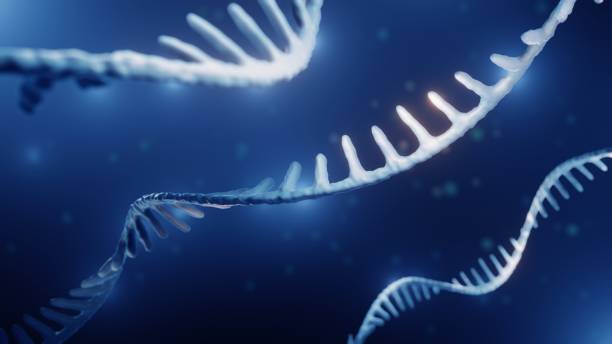Overview of sperm donation programs and their processes in Ostrava
Sperm donation in Ostrava plays a significant role in various medical donation programs aimed at helping individuals and couples facing infertility issues. This informative overview takes a detailed look at how sperm donation works, the criteria for donors, and the potential benefits for both donors and recipients. Understanding these aspects can provide valuable information for those considering participating in such programs.

Sperm donation has become an integral part of assisted reproductive technology, offering hope to countless individuals and couples struggling with infertility. In Ostrava, Czech Republic’s third-largest city, several medical facilities provide comprehensive sperm donation services that adhere to both national and European Union regulations. These programs serve not only local residents but also international patients seeking quality reproductive care.
This article is for informational purposes only and should not be considered medical advice. Please consult a qualified healthcare professional for personalized guidance and treatment.
Understanding the Basics of Sperm Donation Programs
Sperm donation programs in Ostrava operate within specialized fertility clinics and reproductive medicine centers. These facilities maintain strict protocols for donor selection, screening, and sample processing. The programs typically serve multiple purposes: helping couples with male factor infertility, supporting single women who wish to conceive, and assisting same-sex female couples in their family planning journey.
Most programs in the region follow anonymous donation models, though some facilities may offer known donor arrangements under specific circumstances. The donated samples undergo extensive testing and are stored in specialized cryogenic facilities that maintain optimal conditions for long-term preservation. Quality control measures ensure that only samples meeting the highest medical standards are used in treatment procedures.
The Process and Requirements for Sperm Donation
Becoming a sperm donor in Ostrava involves a comprehensive evaluation process that typically spans several weeks. Initial screening includes detailed medical history reviews, physical examinations, and psychological assessments. Potential donors must meet specific age requirements, usually between 18 and 40 years old, and demonstrate good overall health.
Laboratory testing forms a crucial component of the screening process. This includes genetic testing, infectious disease screening, and semen analysis to evaluate sperm quality, concentration, and motility. Donors must also undergo regular health monitoring throughout their participation period, which can extend from six months to two years depending on the program.
The donation process itself involves regular visits to the clinic, typically once or twice weekly. Donors receive detailed instructions about preparation requirements, including abstinence periods and lifestyle considerations that may affect sample quality. Each donation session is carefully documented, and samples are immediately processed and stored according to medical protocols.
Potential Benefits of Participating in Sperm Donation
Participation in sperm donation programs offers various benefits beyond the primary goal of helping others achieve parenthood. Many donors report a sense of fulfillment from contributing to reproductive medicine and supporting individuals facing fertility challenges. The comprehensive health screening process also provides donors with detailed insights into their own reproductive health and genetic profile.
From a medical perspective, sperm donation contributes to advancing reproductive technology research and treatment methods. Donors participate in ongoing studies that help improve success rates and develop new techniques in assisted reproduction. This research benefits the broader medical community and future patients seeking fertility treatments.
The programs also provide economic compensation for time and commitment, though this varies significantly between facilities. Donors receive payments that acknowledge their contribution while ensuring the process remains ethical and non-exploitative. Regular health monitoring throughout participation provides ongoing medical oversight that many donors find valuable.
| Facility Type | Services Offered | Compensation Range (CZK) |
|---|---|---|
| University Hospital | Full screening, storage, research participation | 1,000-2,000 per donation |
| Private Fertility Clinic | Comprehensive evaluation, counseling | 800-1,500 per donation |
| Reproductive Medicine Center | Advanced testing, international programs | 1,200-2,500 per donation |
Prices, rates, or cost estimates mentioned in this article are based on the latest available information but may change over time. Independent research is advised before making financial decisions.
The regulatory framework governing sperm donation in Ostrava ensures ethical practices and patient safety. Czech legislation requires extensive documentation, limits on the number of children born from a single donor, and mandatory waiting periods before samples can be used. These regulations protect all parties involved while maintaining the integrity of reproductive medicine practices.
Medical facilities in Ostrava typically maintain detailed databases tracking donor information, recipient outcomes, and long-term follow-up data. This systematic approach supports quality assurance and enables continuous improvement in program effectiveness. Many facilities also participate in international networks that share best practices and research findings.
Sperm donation programs in Ostrava represent a well-established component of the region’s healthcare infrastructure. These programs combine medical expertise, ethical oversight, and technological advancement to provide essential reproductive services. For individuals considering participation as donors or recipients, understanding the comprehensive nature of these programs helps inform important healthcare decisions. The continued development of reproductive medicine in Ostrava reflects broader advances in fertility treatment and demonstrates the region’s commitment to supporting diverse family planning needs.




